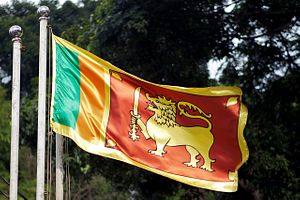In September 2017, my colleague and I met Jesintha Peiris.
Jesintha’s husband and son were among the tens of thousands who disappeared in Sri Lanka’s three-decade-long civil war. They had gone to Colombo in August 2008 to apply for a visa to the United Kingdom and never returned.
Unlike the cases of many other ethnic Tamils believed to have been wrongfully apprehended by the security forces, there had been some developments. An internal navy inquiry in May 2009 recovered passports, national identity papers, and bank cards of several missing persons from an officer’s quarters. Among them were documents belonging to Jesintha’s missing relatives.
By the time we met with her, much more had been discovered. The police Criminal Investigation Department had found that navy officers had forcibly disappeared at least nine others, apparently for ransom. The investigators believed that the 11 men had first been detained at a navy barracks in Colombo, and then transferred to an underground prison at a naval base in Trincomalee.
Several officers had been arrested for the abductions, but the main person accused, Lt. Commander Chandana Prasad Hettiaarachchi, an intelligence officer known as Navy Sampath, was at large. Jesintha wanted him arrested because she believed he would “tell the truth.” The family apparently received a ransom demand but had not succeeded in paying it. Upset and evidently unwell, Jesintha had wept a lot, saying that the grief was killing her.
The investigation into these disappearances has exposed the culture of impunity that persists in Sri Lanka. Political leaders often say the government will not be “hunting down our war heroes.”
There are no accepted figures, but at least 100,000 people had died by the time the civil war ended in 2009 with the defeat of the separatist Liberation Tigers of Tamil Eelam (LTTE). There were serious violations of the laws of war by both sides. The LTTE committed sectarian massacres and political assassinations and used child soldiers. The military carried out extrajudicial killings, torture, and enforced disappearances
In October 2015, the new government of President Maithripala Sirisena supported a resolution at the United Nations Human Rights Council in Geneva that promoted four transitional justice mechanisms for truth and accountability, including a special court with participation by international investigators, prosecutors, and judges, to ensure that those criminally responsible on both sides would be brought to justice. But Sirisena has also promised that his government would not “allow any foreign forces to lay hands on war heroes,” contradicting pledges to allow international oversight.
In June 2018, police Criminal Investigation Department investigators accused the military, including the chief of defense staff, Admiral Ravindra C. Wijegunaratne, of protecting those responsible for these crimes from prosecution. The admiral denied the allegations while Sirisena questioned the arrests of military officials. Navy Sampath was finally arrested a month later. In September the president clarified that no conflict-related human rights violations were under investigation.
In a surprise development on October 26, Sirisena announced that he had sacked the prime minister and replaced him with Mahinda Rajapaksa, the man he defeated in 2015 after the Rajapaksa government was implicated in widespread rights violations. Even as Sirisena’s maneuver was being challenged in court and in parliament, however, the officer investigating the 11 abductions, Inspector Nishantha Silva, was served transfer orders. The police were under acute pressure to take Silva off the case. Wijegunaratne even accused Silva of being affiliated with the defunct LTTE.
After loud public protests, Silva’s transfer order was reversed. On November 29, the authorities finally arrested Wijeguneratne for his role in shielding Lt. Commander Hettiarachchi — Navy Sampath — from arrest. The admiral was released on bail after a week in custody with court strictures to desist from interfering with the investigation.
While the case must still be prosecuted, the families have more hope that there will be justice. The case nevertheless has highlighted the need to shield such investigations from military and political pressure by including independent international participation.
A month after meeting with us, Jesintha Peiris died from a heart attack, still believing that her husband and son were alive, held as secret captives, and that they would be released once all those responsible had been arrested. However, in January 2018, police investigators arrested a navy officer who they believe had dumped the bodies of all 11, killed in custody, in the sea.
The government needs to recognize that prosecuting grave abuses will mean that some “war heroes” will turn out to be criminals.
Meenakshi Ganguly is South Asia director at Human Rights Watch.

































